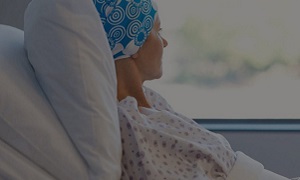Chemotherapy
Think of cancer, and the word ‘chemo’ or ‘chemotherapy’ immediately crops up. Despite its many drawbacks, chemotherapy still remains the most potent adversary of cancer cells along with radiation therapy and/or surgical excisions.
Chemotherapy is the use of anti-cancer drug that helps to slow or stop the growth of rapidly dividing cells that cause cancer. It prevents the growth of rapidly dividing cells by killing the dividing cells. Chemotherapy is often used in combination with other interventions such as surgery or radiation, and other therapies.
Sometimes, chemotherapy is administered prior to a surgery, like therapy can be used to shrink a tumour before surgery. This is called as Neo-adjuvant Therapy. And when chemotherapy is used to remove any remaining cancer cells, after surgery, this is known as Adjuvant Chemotherapy.
The use of chemotherapy depends upon:
- The stage and type of cancer
- Overall health of the patient
- Previous cancer treatments
- The location of the cancer cells
Benefits of Chemotherapy:
- Decrease the count of cancer cells in the patient’s body.
- Shrinks the size of the tumour as it stops the growth of new blood vessels that supply a tumour.
- Reduce the spreading of cancer.
- Reduce symptoms of cancer
- In the late stage of cancer, chemotherapy helps to reduce pain
Chemotherapy Administration modes
Depending upon the patient, chemotherapy is administered;
- Orally – Sometimes, tablets are given to the patient which can be taken home. But the patients need to visit the hospital regularly for check-up & monitor the response of the treatment.
- Intravenous chemotherapy – The drug is administered directly into the vein.
- Intrathecally, injected into the space between layers of tissue that cover the brain and spinal cord
- As intraperitoneal (IP) injection, administered directly into the intestines, stomach, and liver
- Intra-arterially (IA), injected into the artery that leads to the cancer
Duration
For best results, chemotherapy is given to the patient on regular basis over a period, which is specified by the oncologist or cancer specialist. The duration of treatment depends upon the type and stage of the cancer and ranges from a single dose on one day to a few weeks.
Patients who require treatment for more than one day will have a rest period to allow their body to recover.
Side effects of chemotherapy
- Nausea & vomiting
- Hair loss
- Fatigue
- Infection
- Hearing impairment
- Low blood platelet count
- Bleeding problems
- Anaemia
- Loss of appetite
- Bowel problems
FAQs
How long do you feel bad after chemo?
- Acute vomiting most often happens about 5 or 6 hours after chemo. Delayed nausea and vomiting starts more than 24 hours after chemo and up to 5 to 7 days after treatment.
How many rounds of chemo is normal?
- The length of a cycle depends on the treatment being given. Most cycles range from 2 to 6 weeks.
How long is a session of chemo?
- Chemotherapy treatment depends on the individual treatment plan prescribed by the doctor. Some last as long as three or four hours, while others may only take a half-hour

